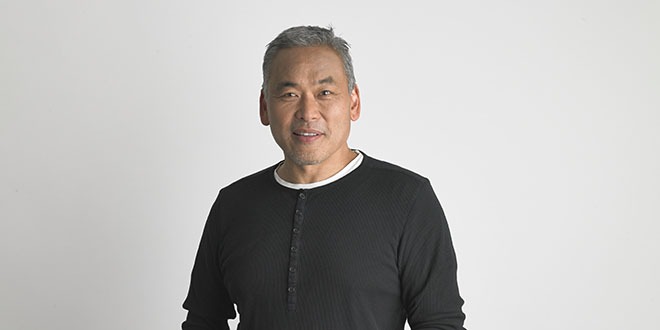Canadians with type 2 diabetes write back to their younger selves, to share personal insights and reflect on their experience of living with diabetes and starting on insulin therapy. In this post, Brian reflects on living with diabetes.
In many ways, Brian, 53, was perfectly positioned to tackle type 2 diabetes when he was diagnosed seven years ago at age 46. He runs his own advertising agency outside of Toronto, Canada, which focuses on the pharmaceutical industry. He studied for an MSc in nutrition and biochemistry, so he comprehends how many diseases work. And he understands numbers: after learning about his condition, he tested his blood sugar levels eight times a day for a week, created a spreadsheet and charted his daily fluctuations for his doctor.
“Diabetes is a game of numbers and I can track those. It was a way for me to take control,” he asserts.
Beyond his own skill set, he’s supported by two well-informed relatives: his wife, Janice, who is a veterinarian, and his sister, who is a dietician. What’s more, diabetes was not a completely foreign condition; both of his parents had it in their later years.
However, sometimes a deep reservoir of knowledge and support doesn’t suffice when you’re confronted with an unexpected development. That’s what happened to Brian three years ago when his doctor told him that he should begin injecting insulin to control his blood sugar levels. He dragged his feet, insisting on several detailed debates with his doctor about alternative medications or dosages. He says: “Sometimes a little knowledge can be dangerous. You may know the right thing to do but still resist it.”
Here is Brian’s letter, written to himself at this time.
Hey 50-year-old me,
What’s the big deal? Why are you stalling?
You started off being so diligent, taking care of your diet and getting more exercise. But I know you think rice is a God-given right… and maybe corn chips, too. Life has been getting fuller, with three teenage boys and a growing company, and your walks have been getting shorter. Your doctor has been talking about adding insulin to your treatment plan for a while, but you’ve resisted at every turn.
While you dig in your heels, I’ll tell you what’s going on. First, in your mind a move to insulin is a loud signal that your disease has progressed. If you need more drugs and medication, it means your body is less able to do what it’s supposed to do. In other words, you’re getting worse, right? That’s sobering and scary. It feels like your path is getting more slippery and other unpleasant developments lie ahead.
Second, you really don’t want to inject yourself with a needle. It just seems repugnant. Period.
I get all that – how could I not? But come on, Brian. You’ve been worried about your high blood sugar levels every morning for far too long. You know something has to change.
Dig into what you know about diabetes. The more you know, the better off you will be. The most fundamental fact: it can be an insidious disease. It doesn’t make you feel different. You don’t look different. But over the course of a decade or two it can result in significant health issues like organ damage, cardiovascular problems or losing a limb. It lies low and then one day your kidney is failing.
Your most potent armour against those dangers, as you know so well, is managing your blood sugar with all the vigilance you can muster – and the best tools. Your doctor has recommended insulin because he thinks it’s the best tool for you, and one of the most natural and direct ways to control your blood sugar levels. You don’t need to be afraid. Adding insulin to your treatment plan doesn’t mean you are seriously sick, nor is it a sign of weakness.
And those needles? Janice can help you with the injections. You’ll be surprised how rapidly you get used to them. You’ll be doing it yourself, no problem, within a week.
Here’s the good news. Seeing your numbers fall into the right range will be such a relief. It will motivate you to do even more – to eat a little better, walk a little more and lose a few pounds.
Stay motivated,
Brian
This story has been edited by Ellyn Spragins and shared with support from Novo Nordisk Canada. The views and opinions expressed are not representative of Novo Nordisk, and should not be considered treatment advice. Novo Nordisk has permission to share this letter and included personal details.
 Diabetes Care Community Learn, connect and care
Diabetes Care Community Learn, connect and care




